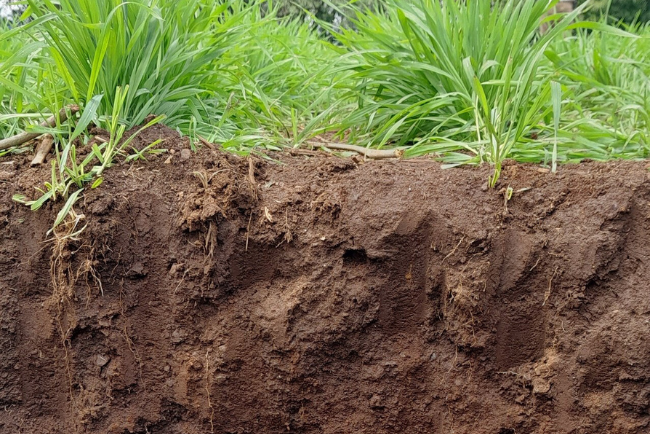
Petrichor is the refreshing, earthy scent that fills the air when rain or water touches the ground after a dry spell. This unique fragrance is caused by the release of compounds such as geosmin, produced by soil-dwelling bacteria, and oils secreted by plants. The term “petrichor” comes from the Greek words petra (stone) and ichor (the fluid that flows in the veins of gods in Greek mythology).
The presence of petrichor is often linked to fertile, healthy soil—a natural, sensory reminder of the life beneath our feet. At Crop Nutrition Laboratory, our mission is to empower farmers to not only grow healthy crops but also to care for and preserve the vitality of their soils for a sustainable future.
Healthy soil is fundamental to our daily lives, influencing everything from the food we eat to the clothes we wear. Many products, including food, beverages, medicines, cleaning agents, and cotton garments, rely on ingredients derived from crops grown in soil. As a growth medium, soil provides essential nutrients, water, and a stable structure to support plant life.
When discussing healthy soil, we consider its chemical, physical, and biological properties, all of which play a crucial role in supporting plant growth. Even nutrient-rich soil may struggle to sustain optimal crop growth if the soil is compact.

Often overlooked but crucial is the soil’s biology. Microorganisms enhance soil aggregate stability and decompose organic matter, improving soil structure, increasing water holding capacity (WHC), controlling erosion, and boosting nutrient availability. Additionally, fungi such as mycorrhizae can help alleviate plant stress. This complex web of life within the soil not only supports plant health but improves soil resilience. Understanding and preserving the soils biology is fundamental to ensuring long-term agricultural sustainability and environmental health.
Soil is much more than just dirt—it’s a dynamic, living system that varies greatly across space. Each soil type, from compact vertisols to low C.E.C arenosols, has its own unique characteristics and requires a customized approach for effective management. Blindly managing soil can harm its health and productivity, which is why it’s crucial to measure your soil, monitor its condition, and manage it based on its specific needs. By understanding your soil’s requirements and keeping it in balance, you ensure its vitality and the long-term success of your crops.
Crop Nutrition tests a variety of soil parameters (150+) designed to allow you to thoroughly assess your soil’s health. Whether you’re focused on biological factors like microbial activity and the fungi-to-bacteria ratio, chemical elements such as macro- and micronutrients, or physical characteristics like soil texture and aggregate stability, we’ve got you covered.
So, the next time you catch the fresh scent of petrichor after a rainfall, take a moment to appreciate the vital role soil plays in sustaining life. That earthy fragrance is a reminder of the soil’s intricate ecosystem, where microorganisms, fungi, and plant roots work together to maintain balance and health. Preserving soil is not only essential for plant growth but also for supporting biodiversity, and combating climate change. By protecting and nurturing our soils, we ensure a sustainable future for ourselves and the planet.
Kindest regards,
Samantha Travas
Order our services and get to know how to improve your soil for better yeilds.